
28 minute read
Coming up for air
Tantaswa Fubu, group executive for human capital and transformation at Barloworld, shares her experiences with depression and how this led to her becoming the poster girl for mental wellness within the organisation
Advertisement
BY SUNGULA NKABINDE
Tantaswa Fubu, group executive for human capital and transformation at Barloworld, had her first bout of depression while completing a gruelling BCom accounting conversion course at the University of Cape Town.

She had completed a BAdmin (Honours) degree majoring in Industrial Psychology and Public Administration and two years later decided to become a chartered accountant. UCT’s conversion course was a one-year course that converted any degree you have from any South African university into a BCom Accounting degree. “We started around the fifth of January and, by the time the normal students joined the university at the beginning of February, we were done with first-year accounting modules and were halfway through Accounting 2. By the time the third-year accounting students started their curriculum, we started with them. It was hectic,” she says. Tantaswa would start classes on campus at 8am and stay until late at night because she would have to go to the library and digest all the information she had learnt, often leaving the campus at 11pm after studying. She would then wake up at 4am to go to the gym. “It was in that year, around June 1996, that I had my first encounter with depression. I was a young mother and a young wife while doing a three-year degree in 12 months.” She had to be medically treated for depression and was put on antidepressants. Nevertheless, she completed the programme. However, the following year, she failed her honours. “It was weird because in the previous year, I did 13 courses and passed all of them and the following year, I did four courses and failed all of them. That sent me into another bout of depression, which lasted a very long time.” Depression hit Tantaswa hard because, before then, she had never failed at anything. She decided to leave UCT to get away from the environment that reminded her of her failure, and she enrolled in a Postgraduate Diploma in Accounting at the University of KwaZulu-Natal. "I was not mature enough at the time to recognise that failing did not make me a failure. I remember crying every time the following year when I opened the textbooks because it was a constant reminder that I had failed."
Becoming a confidante
Tantaswa passed her honours at UKZN, went to do her articles at KPMG, and completed both her board exams in one attempt, all the while being rated as one of the top performers among her peers at the company. She later had a short stint with Standard Bank and, in 2002, became a manager at Nkonki, where she was made a partner a year later. She stayed there until 2006, where she left as the head of External Audit.
Throughout her career, Tantaswa has often been a confidante to her colleagues. People somehow gravitated towards her and felt comfortable enough to be vulnerable and share their innermost vulnerabilities with her, regardless of whether they were work-related or not. Her penchant for mentoring and coaching began to develop without her even noticing it was happening. She returned to KPMG six years after leaving and joined as a partner in their technical accounting division (Department of Professional Practice – DPP). Says Tantaswa: “I had barely been there a month when people started streaming into my office to share their problems. Some would tell me that they were not treated fairly, while others were anxious about their careers, saying they didn't feel they were going to be able to make partner. Interestingly, even some of the partners would send their top performers to me for coaching in order to prepare them to be ready for the partner role. Even though that was never really a role I had been given by the organisation, I would get asked to help get so-and-so over the line.” Asked what it was about her that gave people this inclination to trust her, Tanstaswa says, "If I could tell, I would probably be very wealthy right now because I'd bottle it and sell it. But, honestly, I don't know what people see.”
Like a fish to water
Tantaswa's humility and magnetism did not go unnoticed. Eventually, the now-former KPMG CEO and senior partner Moses Kgosana asked her to lead the HR function.
“And that's how I became an HR leader. I asked him why me specifically and he told me that some partners in the people space had gone to him and asked that I be their executive partner.” Tantaswa laughs about how Ntate Kgosana, as she calls him, gave her a month, not to think about it, but to figure out what she was going to do when she started in her new role.
But she took to it like a fish to water. As someone that had been a client of the people function, Tantaswa says she knew where to start and came up with a skeleton of a strategy. She identified people who she believed were influencers in the HR space and shared her ideas. They loved them and, before she knew it, the strategy had legs and had been sold to senior people within the organisation. “Literally, all I had were a few ideas written on a page. But, by the time those team members came back to me, it was a fully-fledged HR strategy and that was ready to be implemented. That experience really influenced my leadership style because it taught me that, all one needs to do as a leader is give people a vision that excites them, and thereafter allow them to bring it to life,” says Tantaswa.

Among the many changes to HR policy at KPMG was the rule that if a bursar failed their CTA (Honours) year, they would not be sponsored again. Because she also had failed that year and understood that there were sometimes real issues that real people have to deal with, she decided to give people a second chance. The rationale was, had she never been given a second chance to repeat her Honours year, she never would have made it as a CA.
“I motivated the change by sharing my experience and saying 'Can you imagine how many Tantaswas have been lost already and how many more we will continue to lose if we don't fix this?'," she says. She also put a stop to the firm sponsoring the children of partners as she believed they could afford to pay university fees, and that the money could be used more effectively by students in real need. During her time
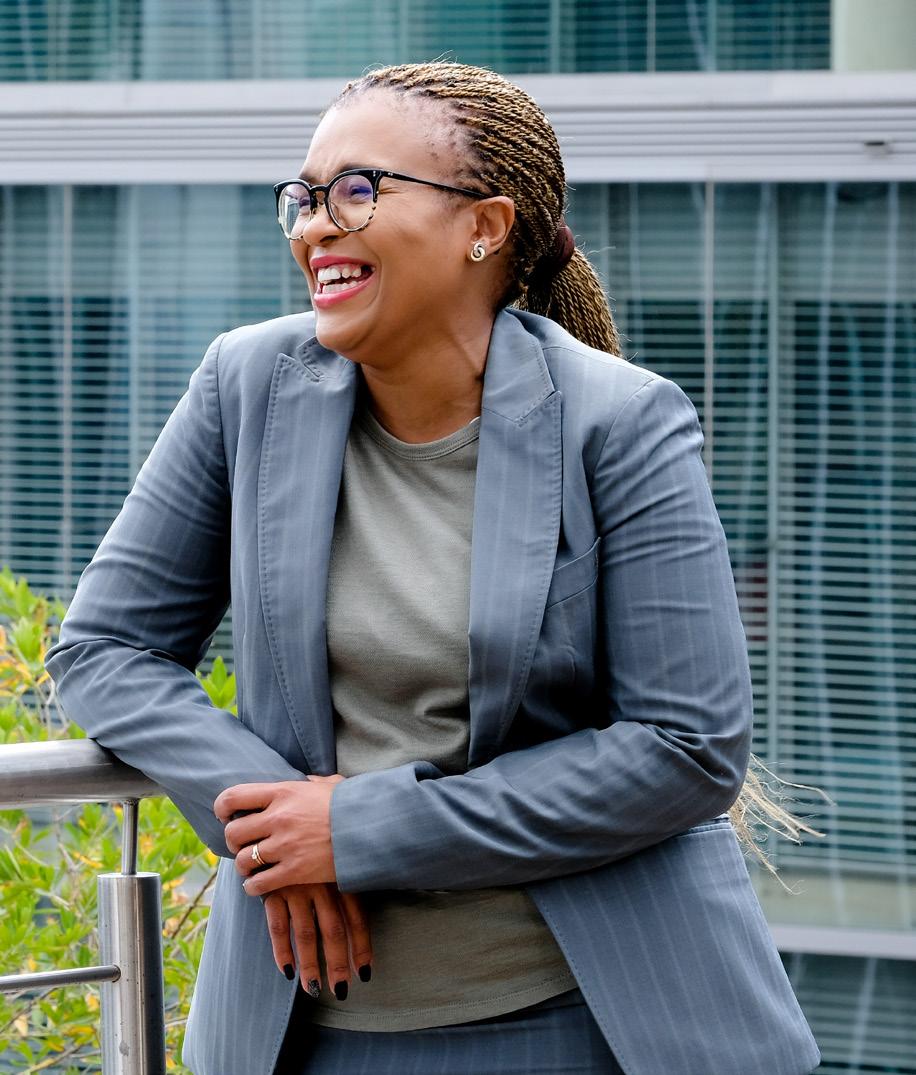
Tantaswa Fubu
Work: Tantaswa Fubu was appointed Group Executive: Human Capital, Internal Audit & Facilities at Barloworld in February 2017. She also serves as a board member for Barloworld Equipment Southern Africa, Barloworld Logistics Africa, Barloworld Siyakhula and Barloworld SA. Previously, Tantaswa has worked for Standard Bank, Nkonki and at KPMG as Executive Head for People & Transformation. Education: Postgraduate Diploma in Accounting, (University of KwaZulu-Natal), BCom Accountants’ Conversion Course, (University of Cape Town), BAdmin Honours Ind Psychology and Public Admin (University of the Western Cape)
in this role, she grew the bursary fund significantly, trying to ensure that the firm puts as many disadvantaged children through university as possible.
Becoming the poster girl for mental wellness
Fast forward to 2019, where depression reared its head again. By then Tantaswa had been in her current role for close on two years and, looking back on it now, she says she should have seen it coming because she knew the signs from her previous bouts.
“But I kept postponing getting help. There was no time for me to be getting sick. It was a big year for me because, on top of the HC projects I was leading, I was delivering a R3.5 billion BEE transaction for the group,” she says. “But when you do not make time to address this sickness, there will always come a point where your body gives in.” Tantaswa says she was giving from a point of nothingness when one day she went into a meeting with the group CEO “and all he did was ask me how I am and seconds later I was breaking down in tears.” “He organised for one of our drivers to drive me home and then to take me to the doctor. I was booked off for three weeks, with no questions about how that would impact my leave or when I would be ready to provide input on this or that project. All my boss kept saying was that I must get the help I need and get well before I think of coming back to work.” Up to that point, Tantaswa had already begun working on a business case around a group wellness strategy with a specific focus on mental health issues. She was quite clear of the need to create an environment conducive to people feeling safe about being sick. It was a scenario in which employees would be able to self-diagnose and seek treatment for mental health problems because they have been empowered with the relevant knowledge, are in a safe space to express through whatever workplace channels that they need help, and for the workplace to be able to facilitate that assistance in a humane manner. She wanted to create an environment where people would always be treated with dignity and respect. Tantaswa's experience gave Barloworld (and her, as the executive responsible for wellness) a case study on how to handle mental health and allowed the company to put a face on the issue of depression. “I also made the conscious decision to actively champion mental health in the business because I was really caught unawares by the whole experience of dealing with it in a work environment,” says Tantaswa, adding that her team started engaging with clinical psychologists and specialists to help them understand what the organisation was really dealing with. "For me, it was a very personal journey," she adds.
Emotional impact workshops
That work really prepared Barloworld for the wellness side of dealing with the Covid-19 pandemic. Whether it is with regard to their health or job security, employees are anxious about the future. They are now also contending with working in this new working environment – their homes – which comes with its own variety of mental pressures and triggers. But, because of Tantaswa's experience, Barloworld has been more proactive about mental wellness. “Since my experience, we’ve introduced wellness workshops where employees talk about what stress, depression and anxiety are and how the symptoms manifest. Not only that, we continuously engage with employees on how best to approach what is still a very sensitive subject.” Tantaswa says she has recently been involved in running emotional impact workshops with the help of psychologists whereby people have been able to come in groups of not more than 15 and share their experiences, anxieties, anger, and disappointments during the pandemic. She decided to introduce the workshops because of everything employees have gone through during lockdown, including retrenchments.
Says Tantaswa: “The workshops have been so well received and our people indicated that they needed to debrief. The participants were mixed and group exco could hear first hand how people felt and also our people could hear how we were also impacted by the decisions we took. We are on this healing journey because I do not want to be reactive, deal with people when they are already on the depressing side. We are trying to keep people on the healthy side, deliberately and proactively.” To prove how important mental wellness is to an organisation, Tantaswa shares the story of a young woman in the finance division who was on the verge of being labelled as a non-performer until Tantaswa posed the question, "Has she always been a non-performer and, if so, why have we kept her for so long?”
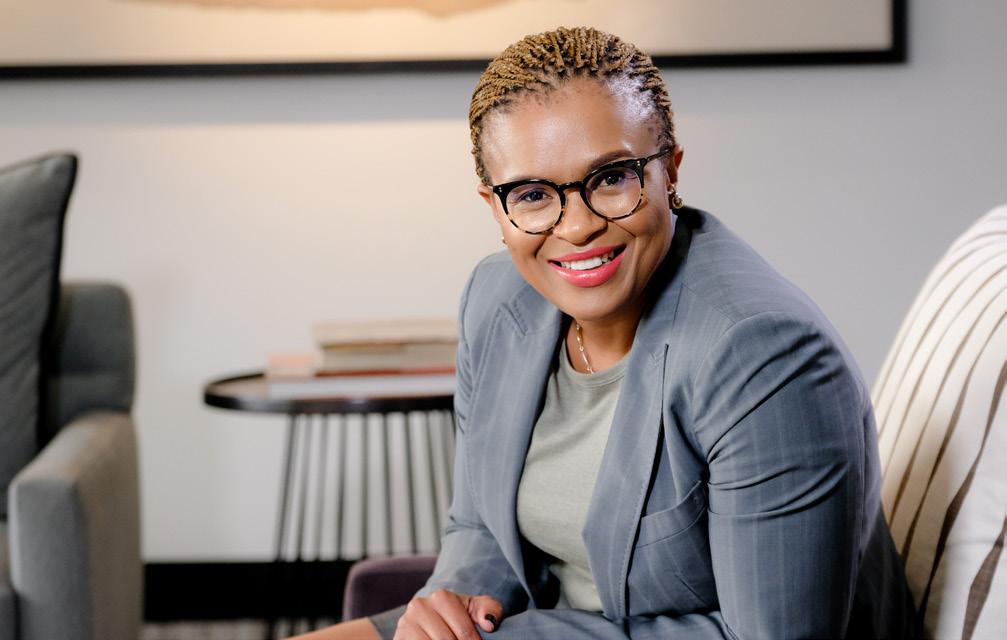
The answer was ‘no’ and eventually, it was uncovered that she had been struggling with depression. In another instance, one of the divisional executives recently lost their mother and, because Barloword is in tune with the story of an African woman in this situation, who needs to go home and cook for people coming to pay their respects and plan the funeral, all the while managing her own grief, Tantaswa undertook to ensure that food was delivered to her home daily so that she didn't have to deal with that aspect of the grieving process. She also made sure to help her will all the logistics around planning the funeral. And days before the funeral, Tantaswa sent a massage therapist to her home for a much-needed massage.
It’s not just about depression
Barloworld still subscribes to services like ICAS and had wellness days but those activities were quite disjointed before. Since Tantaswa's experience, the company has taken an approach that embraces the spirit as opposed to the letter of wellness policies. Says Tantaswa: “Now when we give someone time off, we bring in a temp so that the person who is supposed to be healing is not sabotaged by the thought of work piling up while they are away. We also found instances of substance abuse and, whereas before those people would be fired, we now bring psychologists in to help them. I'm telling you, it's been such a revelation that I even get spouses coming to see me to say ‘thank you’." Barloworld is now at a place where the leaders are thinking about the person and how they are being impacted and taking steps to ease their burden. That’s how they approach mental wellness. And, for Tantaswa, it’s not only simply about depression. It’s about de-stigmatising vulnerability and allowing people to find their voices. And it's working, because now people are reporting things that could lead them to be depressed. They are talking about the issues in their families and work environments that could trigger that spiral. It has created awareness throughout the business and, partly due to Tantaswa's experience, there has hardly been any push back from the executive leadership team. “I think that when you go the extra mile to care for people in this manner, you inadvertently create policies and practices that can be abused but I strongly believe it is better to rather create consequence management for people who abuse the system than to not have these kinds of measures in place.”
POWER TO THE PEOPLE
Eskom group executive for HR Elsie Pule’s entire career has been spent with the utility, barring a three-year stint at SARS. In the 20 or so years she has been with the company, she has become an expert in the field of performance.
BY PUSELETSO MOMPEI
Heading up the function of an organisation everyone loves to hate isn’t easy, but Elsie Pule’s commitment to the success of Africa’s largest energy utility is unquestionable. The group executive: HR at Eskom since 2016, Elsie Pule has been with the organisation since 1995, a streak only broken by a threeyear stint at SARS from 2010 to 2012.
Despite an enviable career, she admits that her path to HR was an unintended one. “Having grown up in Winterveldt, my world view wasn’t expansive and I didn’t know a lot about career options.” All she knew was that she was going to pursue an education and do something to better herself and those around her. “When registering at The University of the North, also known as ‘Turfloop’, in 1985, I saw a queue for Humanities and I remembered a lady back home whom I admired, and she was a social worker. I decided to follow in her steps and enrolled for a degree in social work," she recalls. This led her down the path of working for Government and the NGO sector, servicing the underprivileged, children and the elderly. A pivotal experience was participating in the change management process in the early nineties when the banks moved pensioners from bank books to cards. This was a difficult change; however, the elderly embraced it and the rest is history.
“I worked in underserved communities including Brits, Winterveldt, Moutse, Cullinan, Bronkhorspruit, Mamelodi and Atteridgeville, where a lot of the elderly had low rates of literacy and needed extra care.” She found that setting up old-age homes, luncheon clubs, feeding schemes and other social services was a momentous period that, while it was demanding, changed people’s lives. Through that and other similar situations, she built strong organising and grassroots skills, which have proved powerful assets throughout her career.
In 1995, South Africa was in its early days of democracy and Eskom was looking for talented, black professionals in its affirmative action drive.
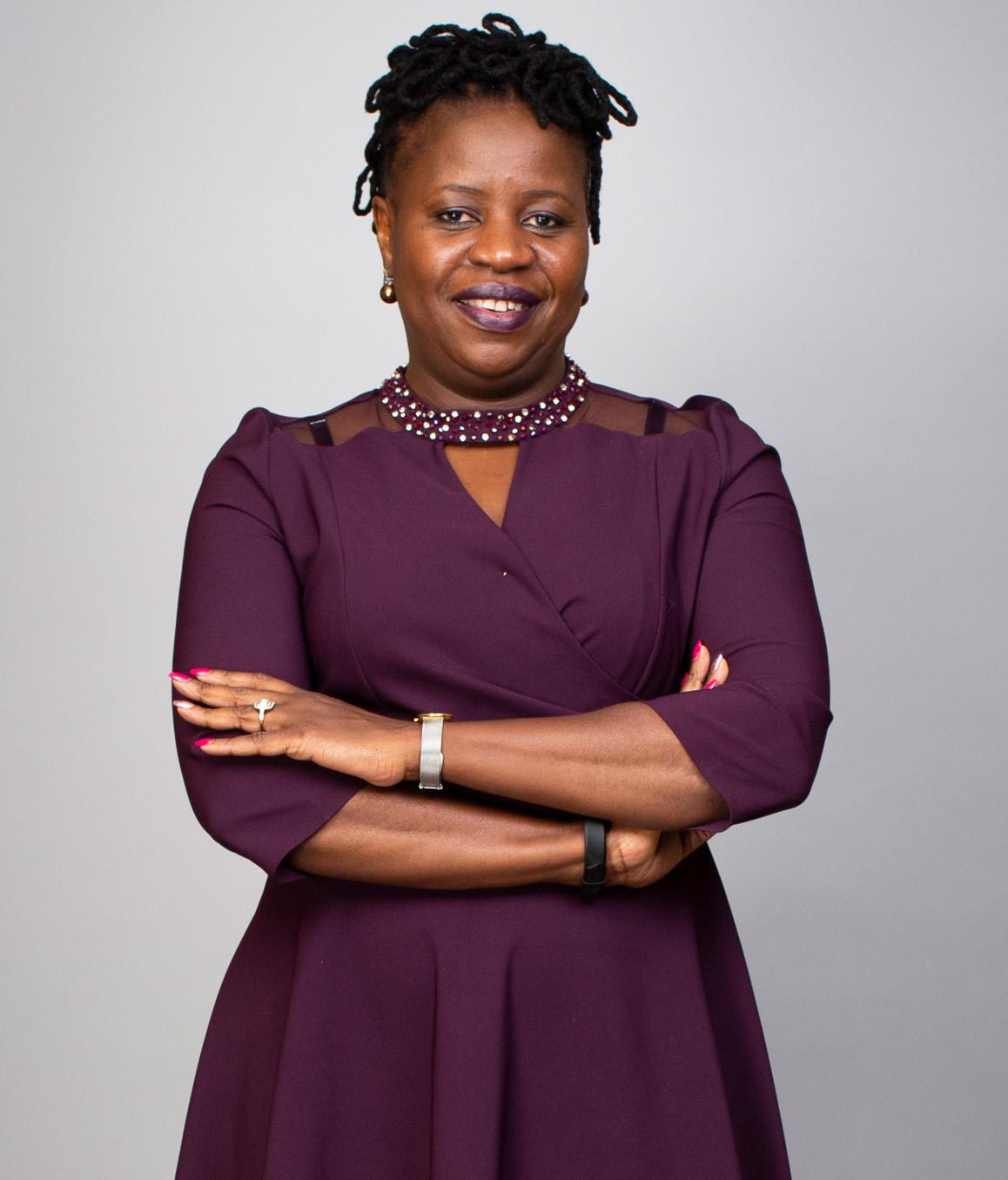
Elsie had just completed her Honours in Psychology at the University of Pretoria, where the language of instruction was Afrikaans, which led her to being hired as the first African lecturer at the University of Pretoria to start the Psychology classes in the English medium. She is very proud that this opened the door for many non-Afrikaans psychology students to access an education at the University of Pretoria. Then, Eskom headhunted her to play an organisational development advisor role.
Driving performance
As an advisor, she had the opportunity to carve out a niche for herself and quickly honed in on the issue of human performance to understand what causes human error and sub-par delivery. An avid behaviourist herself, she spearheaded the establishment of the Human Performance function in the Generation Division of Eskom and revealed that underperformance is mostly a function of latent organisational weaknesses including poor management decisions and inadequate policies, and often not particularly a reflection of competency.
Elsie thrives off projects with complexity and high impact. She was tasked with creating the business case to structure the Shared Services Unit at Eskom.
Says Elsie: “I was thrown in the deep end and had never done anything like that. I travelled the world learning from leading companies, including Shell and Walmart. I picked up best practices and led the design implementation of the unit. In 2004, we went live with the first business and have been
Elsie Pule
Group Executive: HR, Eskom
Work: Elsie Pule, group executive for human resources at Eskom, spent her first few career years at the utility, during which time she fulfilled various roles spanning the entire HR value chain. She has extensive experience in the field of human resources and was the deputy president of the Institute for Personnel Management for two years. After a stint as chief officer for human resources at the South African Revenue Services, Elsie rejoined Eskom as a senior general manager for human resources and then acted as the group executive for human resources from November 2014 until her permanent appointment to the role in 2016. Education: MA, Business Engineering, University of Warwick, (Warwick Business School), BA (Hons), Psychology, University of Pretoria, BA (Hons), Social Work, University of Limpopo capitalising on benefits such as capacity flexibility and cost savings since then.”
In 2009 the South Africa Revenue Service (SARS) approached her to come on board as chief human resources officer – an offer she took up. The role aligned with her passion for serving a higher purpose and afforded her the satisfaction of knowing her decisions changed the trajectory of many young people through bursaries, graduate training and other opportunities.
“It was a complex role and I had to quickly learn about the fiscus and immerse myself in the world of finance. I started participating in the World Customs Universities, spent a lot of time coming to an understanding of how countries such as China ran their customs and helped in establishing the Africa Tax Forum, especially the staffing establishment and capabilities,” says Elsie.
She also addressed issues of compliance within SARS, and is most proud of having started the SARS Academy of Learning, which boasted a ground-breaking customs training programme that saw her team giving virtual training around the world as part of the World Customs Universities.
Coming back to Eskom
Elsie returned to Eskom after three years at SARS and took up a general senior manager position. She was strategic in navigating her career and made sure that her tasks were high-impact, high-visibility projects, which included the Eskom Women’s Advancement Programme. This initiative has successfully moved the proportion of women in the executive band from 27 percent to 40 percent today. She is also particularly proud of a programme that has recruited 100 youngsters as nuclear operators, 40 being female, who are now being phased in as licensed nuclear operators over a period of five years.
She admits that navigating a space like Eskom is difficult for a multitude of reasons. A World Bank study in 2016 found that Eskom was 66 percent overstaffed. Many of the challenges she has had to confront are a result of competing priorities, such as reducing the parastatal’s wage bill while finding efficiencies and balancing those against the pressure to maintain jobs in a country where unemployment is at endemic proportions.
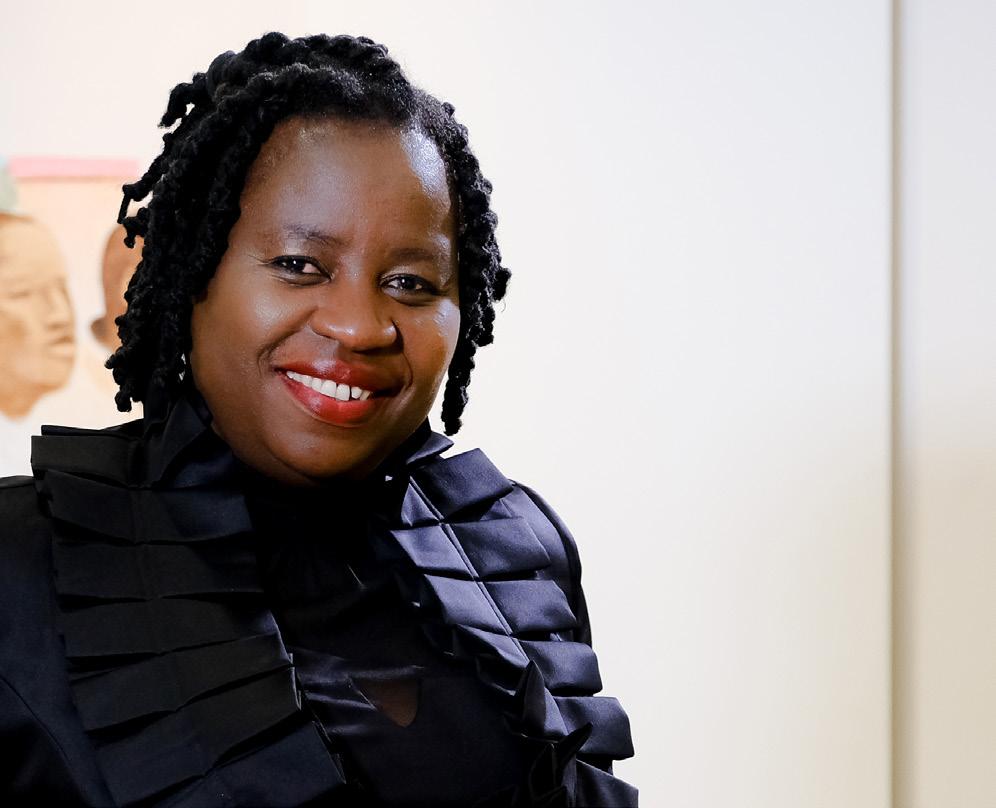
Stood the test of time
Elsie has served under several chief executives and boards and navigated her career through one crisis after the other, including the load-shedding that threatened to derail the 2010 World cup, labour disputes and corruption and mismanagement scandals. She has been steadfast in playing a constructive role in helping the organisation navigate these challenges.
From an HR perspective, tough decisions have seen the organisation’s headcount fall to 46,665 employees in 2019, about four percent lower than the previous year, but wider staff cuts have been resisted while taxpayers are expecting Eskom to be more prudent. “Some of our most burning issues include keeping the country’s power supply going, getting the best out of talent, being agile enough to change with our rapidly transforming world and meeting demands of the future.”
Elsie understands the magnitude and impact of the people component at Eskom, given its role as a major economic driver and an enabler for millions. Despite the challenges the utility faces, she believes it can become the beacon of excellence it once was.
“I have seen Eskom at its highest, when it was an award-winning, world-renowned utility company. I have met people who have grown and achieved a lot of impact. Knowing that the organisation can achieve these heights is what drives me.”
FROM #METOO TO #MENEITHER

In a recent CHRO South Africa webinar, Barloworld group executive for human capital and transformation Tantaswa Fubu, Elite Wealth Assets Insurance MD Christelle Colman, and Cliffe Dekker Hofmeyr director Fiona Leppan interrogated HR’s role in fighting sexual harassment in the workplace.
BY SUNGULA NKABINDE
“It is time that, as leaders of Corporate South Africa, we clear our collective names and ensure that the environments we lead are safe for women.” These are the words of Tantaswa Fubu, group executive for human capital at Barloworld, who was part of a CHRO webinar about the #Me
Too movement and the role that HR should play in fighting sexual harassment and predatory behaviour in the workplace. The #MeToo movement created the opportunity for women to speak out and shattered the isolation and stigmatisation that survivors of sexual crimes often experience, with even more people coming forward to share their experiences as a result. .
In a discussion led by CHRO SA head of marketing Judith Kamffer, the webinar explored how HR professionals can create a safer workplace and help the survivors in their organisations get the justice they need. A poll of the webinar attendees revealed that 46 percent of employees felt protected and safe from different forms of predatory behaviour, while 20 percent said their companies had policies in place but did not feel sufficiently protected. Meanwhile, 20 percent said their policies only support victims of predatory behaviour and do nothing to prevent it, and, unfortunately, 13 percent said employees were not protected against predatory behaviour at all.
“I expected fewer people to say they feel protected but, even as I say that, I truly believe 46 percent is too low. If it was an exam, that would be a fail,” said Tantaswa.
Tantaswa explained how she was once called in to deal with a case of sexual harassment where the victim was not believed. What amazed her about the entire debacle was not only that the survivor was not believed, but also that there was active support for the perpetrator. “And, to my horror of horrors, the people that were supporting the perpetrator and not believing the victim, were women,” she said.
Tantaswa attributed this to a variety of factors, not least of which is the fact the patriarchy is so entrenched in society that even women are predisposed to believe men more than women in such instances. Another factor is that, even in companies that have sexual harassment policies in place, it is very seldom that employees know about them. Furthermore, when new employees are inducted

into the organisation, it is rare that they are told anything about the company’s position on predatory behaviour and what it does to prevent and punish sexual harassment. Most importantly, the people who are supposed to deal with such cases are not trained on how to approach these kinds of issues.
“People don't even know how to define sexual harassment,” she said, adding that people need to know that there is someone they can speak to if there is an incident. “Also, when people have spoken up, the way you treat them has to be consistent with the commitment to care for people that so many companies claim they have.” Said Tantaswa: “If I'm made to feel like a villain for having spoken up, I'm not going to have the guts to see the legal fight through. Also, I am going to share that experience with my friends and they too will not want to speak up. How you make the victim feel during the process is quite important. How you hold their hand through the process is vital and, this thing of asking people to prove that sexual harassment occurred is uncalled for because there are no receipts. No one is going to harass you and then give you a receipt and say 'On this day I harassed you and this is the proof.'.”
Starts at the top
Christelle Colman, MD of Elite Wealth Assets Insurance, said it all starts with the leadership of the organisation, explaining that predatory behaviour emanates from higher levels in the organsation. Over the course of a 30-year career, she had been the victim of predatory behaviour from senior men in the organisations that employed her.
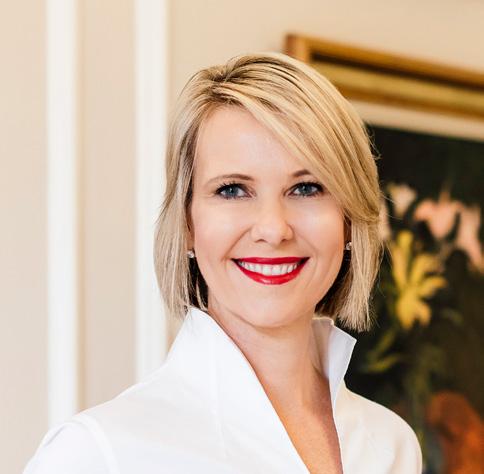
In a previous role, while attending an executive leadership conference, she sat in a corner of the meeting room because she didn't want to be close to a particular individual, who nevertheless came and sat next to her.
“He made a very inappropriate comment in front of the leadership team. Everyone laughed and I felt utterly embarrassed. He then went on to repeat the same joke at lunch and I firmly believe that this was done to put me in my place,” said Christelle, adding that inappropriate jokes made at the expense of a female colleague can be used as a bullying tactic to let her know that she is not respected and low in the pecking order of a leadership team. She also said that, because predatory behaviour is often exhibited by high-performing individuals, it is not easy to speak up against them. When this incident occurred, she wanted to raise the issue with HR but the individual in question had been instrumental in the company achieving incredible business performance. She never reported it and, as she reflected upon her ordeal, she wondered how someone in a less senior role could possibly garner the courage to speak up against such behaviour when she, as a member of the leadership team, was not willing to do so.
It’s not a South African problem
Christelle said, however, that it was important to remember that the predatory and aggressive behaviour from men towards women is not unique to South Africa.
“Sometimes we think that, because of the scourge of gender-based violence in this country, we are worse off than elsewhere in the world. And that is simply not the case,” she said.
“In my previous life, I was the CEO of a European business with a presence in South Africa. And I was the only female CEO out of 35 countries. Whenever I attended monthly meetings in Europe, I was surrounded by European men. And let me tell you, they have a much bigger problem. The patriarchy that is entrenched in some of the well-known European companies is incredible.” Christelle was once called to Europe to present a strategy, and there was a bully on the executive committee “who really made it his business to make life difficult for me. I had a really bad interaction with him and literally flew back to South Africa and resigned the next morning. “I would rather leave an organisation than face that situation. I am a rape survivor. I was raped when I was 11 years old, so I am very aware of predatory behaviour.”
She said that’s why companies really have to nip this kind of behaviour in the bud. There are many companies that have and will continue to lose excellent talent if they do not address this issue. The impact of talent attraction can be catastrophic because not only will a high-performing individual leave and never return to the business, they will also damage the employer brand when they share their story with people in their network who in
turn would not want to associate with such a company,
Financial damages can be hefty
Speaking on the extent to which the law protected victims of sexual harassment and predatory behaviour in the workplace, Fiona Leppan, director at Cliffe Dekker Hofmeyr, said there were many examples in case law of women who have had tremendous difficulties with post-traumatic stress disorder as a consequence of this type of conduct. As such, employers can indeed be held liable for even failing to prevent such incidences. “Once this type of behaviour manifests, it's got to be brought to the attention of the employer, not necessarily by the victim but through HR. The Employment Equity Act is very clear in stating that if an employer hasn’t taken all reasonable steps in a situation to prevent that kind of conduct, it will find itself on the wrong side of liability,” said Fiona, adding that, should a victim come forward with information about an incident, they have rights that protect them from victimisation. When they provide confidential information, for example, that information must be kept confidential and if there was a person that was to release that information, it's considered a criminal offence under the Employment Equity Act. Victims are also protected against being subjected to any occupational detriment as a result of coming forward. “The person against whom a complaint is lodged certainly can't take the stance they are going to start
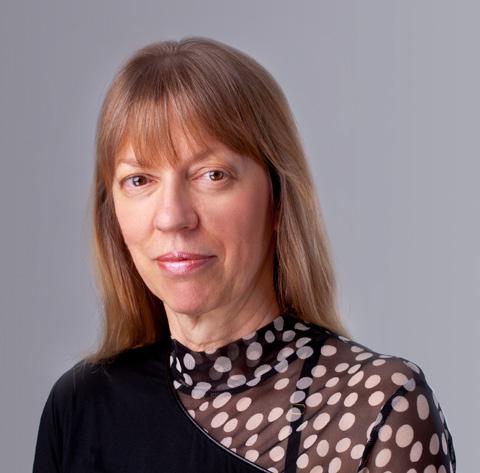
finding fault in the complainant's work with the view of driving them out of the business through disciplinary processes. That will not be tolerated by our courts.”
Generally, in terms of victim remedies, she said the Labour Court has become extremely strident in exercising its powers under the EE act. This can lead to compensation claims, punitive damages, which can be awarded over and above the compensation claims.
Said Fiona: “In one decision, the judge placed great emphasis on one of those preventative measures being ongoing training in your business to highlight what conduct will not be tolerated. Also, what are the consequences? An individual who is the harasser can be sued in his own right, for damages. “There is nothing to stop the employer saying ‘I warned you not to do this. You caused me a loss and I'm suing you in order to be recompensed.’.” Ultimately, the key takeaway from the webinar was that, if organisations are going to make any meaningful change regarding sexual harassment it has to come from the top. Leadership has to demonstrate that it is committed to addressing the issue. “Talk is cheap. We need to demonstrate how we deal with perpetrators. If we are just going to say, this is what we believe, this is what we stand against, and people continue to be subjected to sexual harassment, the trust deficit will remain, said Tantaswa. “We have targets for diversity. We have targets for revenue. But we are so quiet about an issue that, at its core, is about the safety and well-being of our people.”






